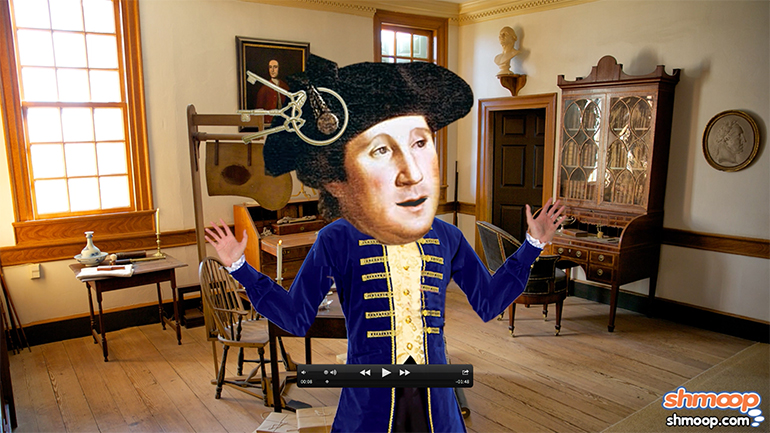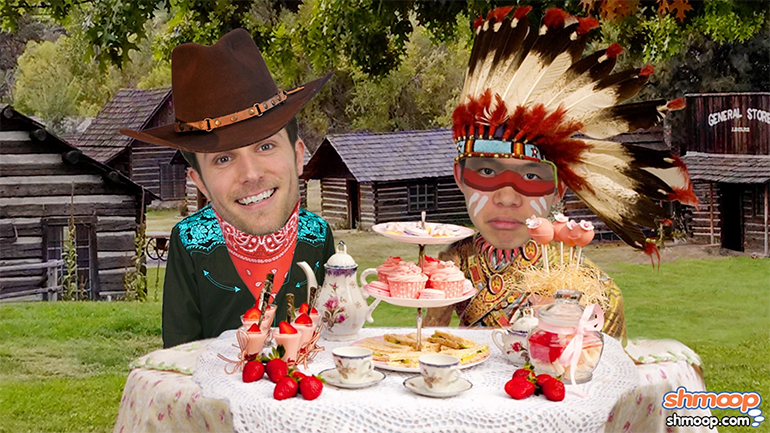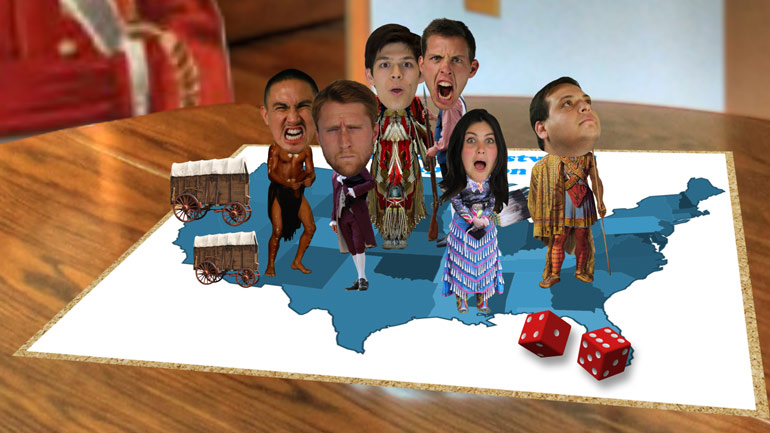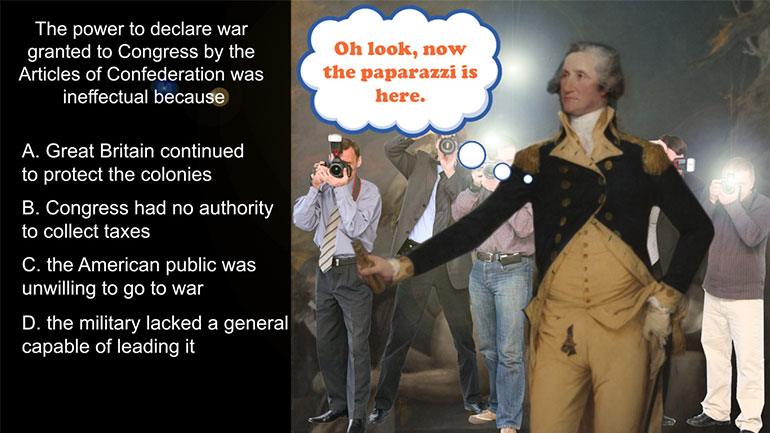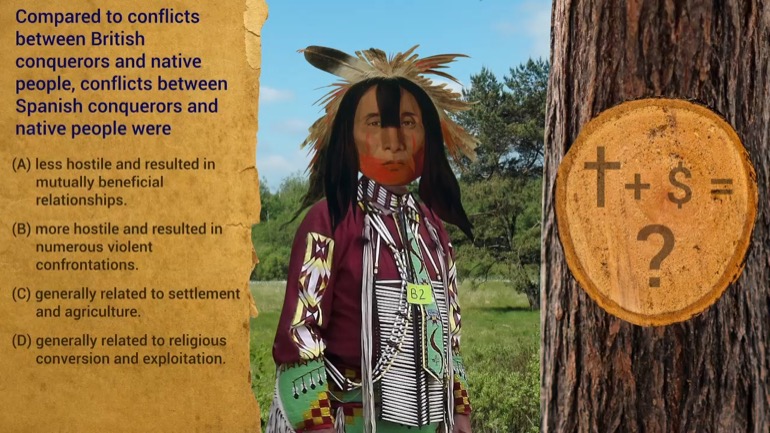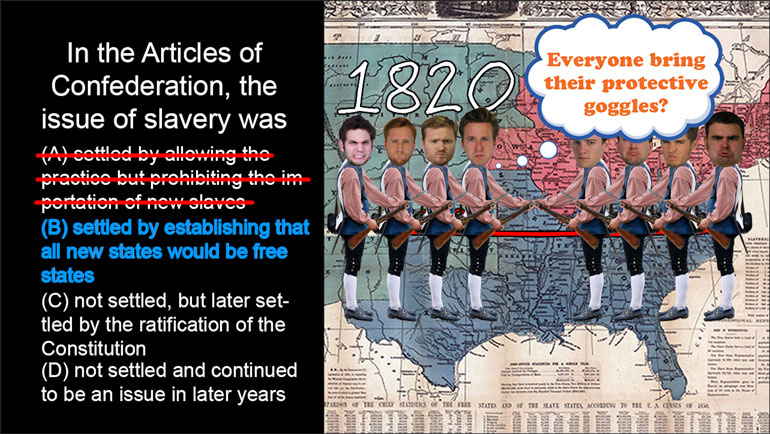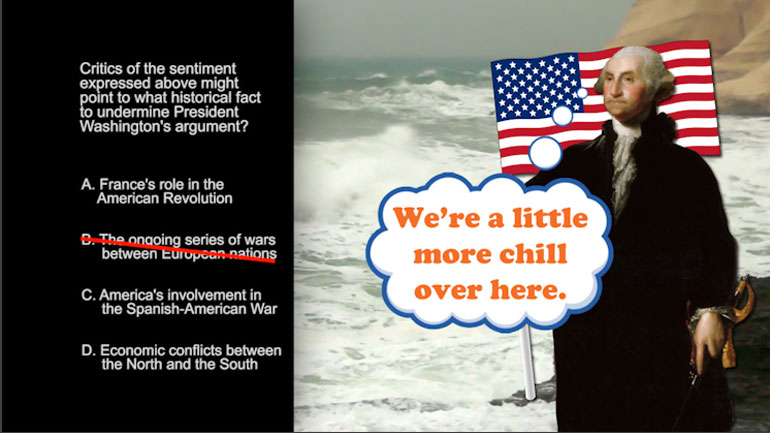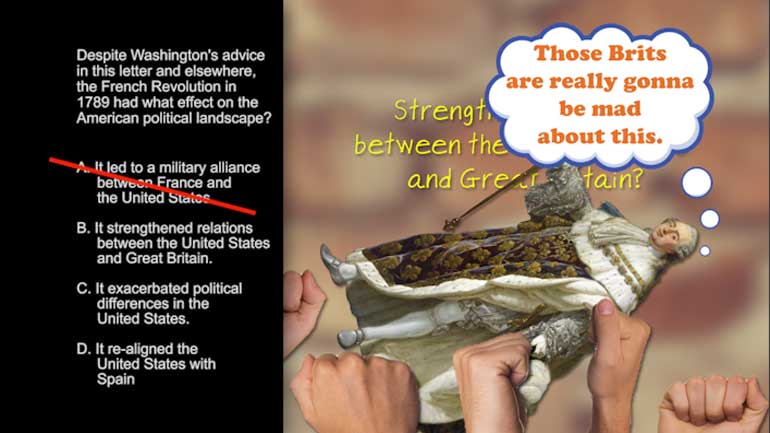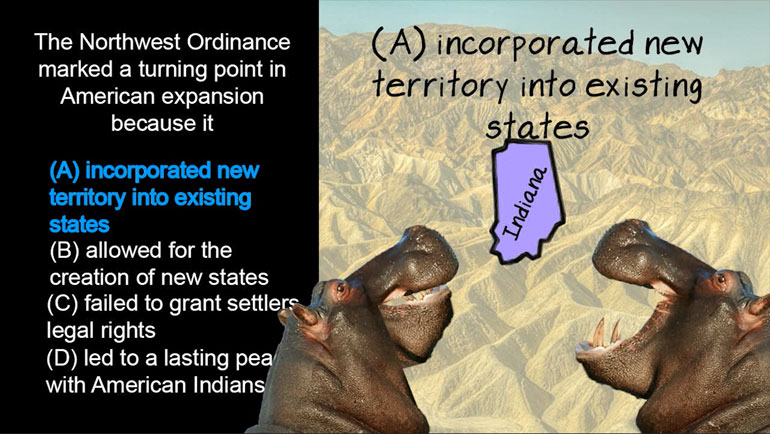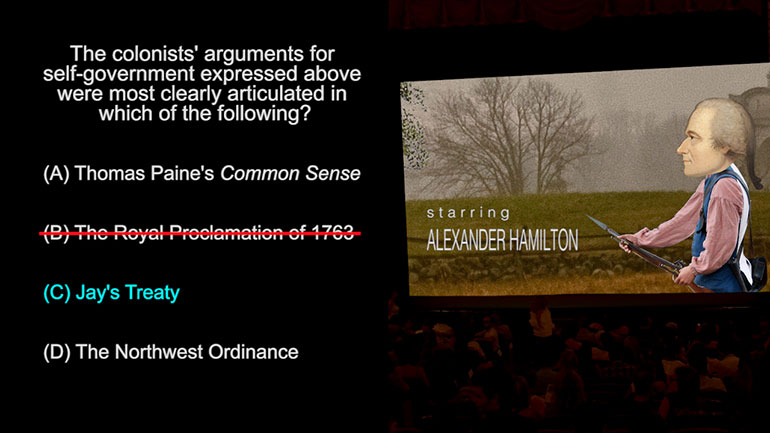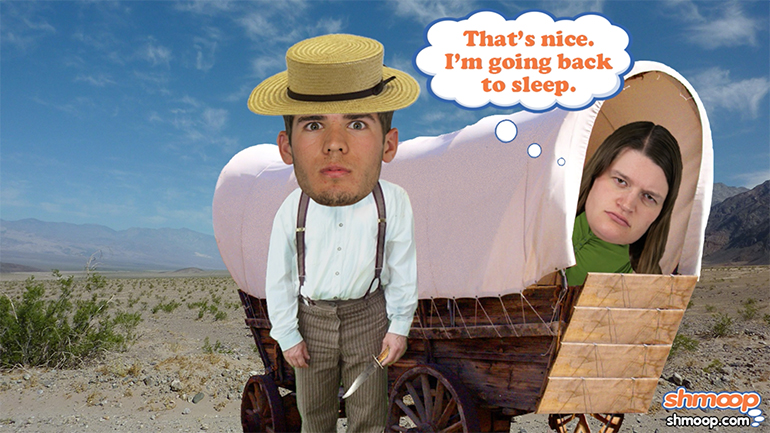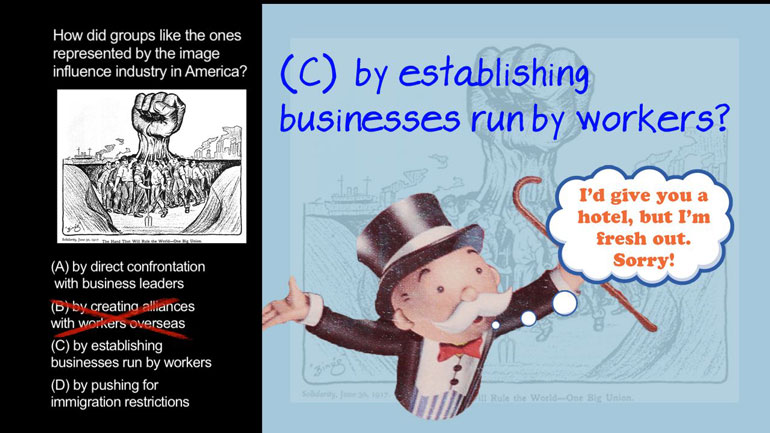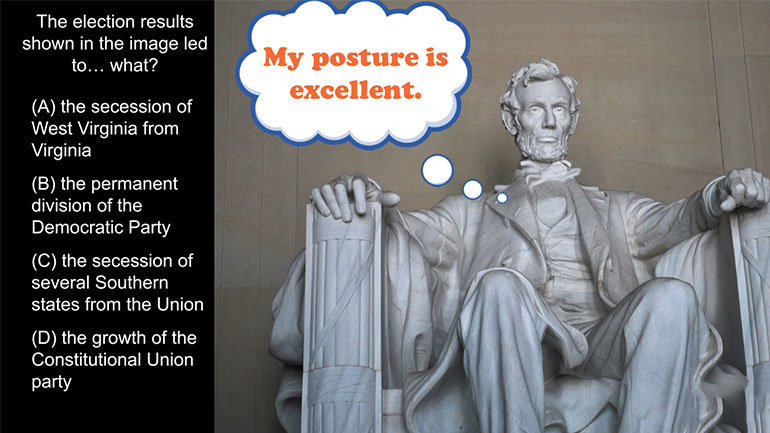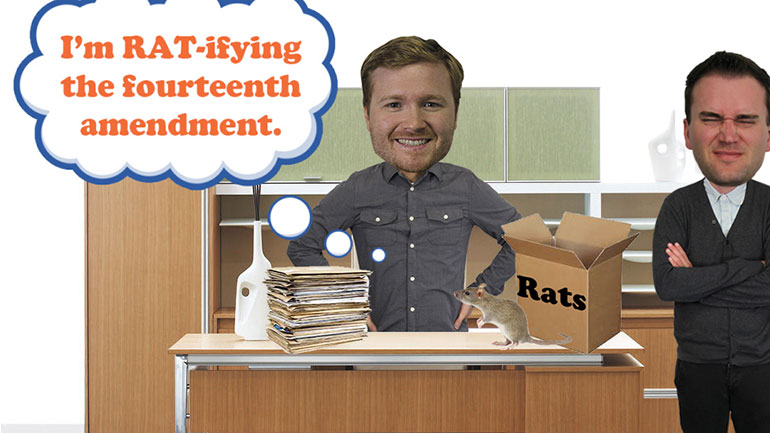ShmoopTube
Where Monty Python meets your 10th grade teacher.
Search Thousands of Shmoop Videos
Period 3: 1754–1800 Videos 20 videos
AP U.S. History 3.1 Period 3: 1754-1800. Which of the following best describes the goals of the Stamp Act?
AP U.S. History 3.2 Period 3: 1754-1800. The enactment of the goals expressed in the excerpt directly led to...what?
AP U.S. History 3.3 Period 3: 1754-1800. The argument in the excerpt directly reflects a continuation of which of the following Enlightenment belie...
AP U.S. History 1.4 Period 3: 1754-1800 300 Views
Share It!
Description:
AP U.S. History 1.4 Period 3: 1754-1800. In the Articles of Confederation, the issue of slavery was what?
Transcript
- 00:00
Sorry And here's your smoke du jour brought to you
- 00:05
by punting the best way to get rid of a
- 00:07
problem I'll give this excerpt a read no state shall
- 00:12
be agent booth All right And now the question in
- 00:22
the articles of confederation the issue of slavery was what
Full Transcript
- 00:27
and hear your complaint settled not settled are our biggest
- 00:33
clue Here is the date that the articles of confederation
- 00:36
was written so remember that year cell fourteen eighty one
- 00:40
as we check out these answers to the articles of
- 00:42
confederation a settle the issue of slavery by allowing the
- 00:46
practice but prohibiting the importation of new slaves when i'll
- 00:50
let see international slave training wasn't banned until eighteen o
- 00:54
eight that's almost thirty years later is that eliminates a
- 00:57
on what about b They settled slavery by establishing that
- 01:00
all new states would be free states Well does the
- 01:03
missouri compromise ring about it should because that eighteen twenty
- 01:07
act attempted to resolve the issue of whether or not
- 01:09
new states would allow slavery and even that didn't fix
- 01:12
things In fact it took another forty five years for
- 01:16
the government to settle things once and for all it
- 01:18
was bloody when they did so it's not be either
- 01:21
So then maybe the issue of slavery was c not
- 01:24
settled by the articles but was later settled by the
- 01:27
ratification of the constitution Well that sure would have saved
- 01:30
everyone a lot of trouble down the road But the
- 01:32
constitution also failed to clarify the government's position on slavery
- 01:36
that knocks out see as well which means that slavery
- 01:39
was d not settled in the articles and continued to
- 01:43
be an issue in later years And did it ever
- 01:46
Slavery was the giant elephant in the room in the
- 01:48
early days of the country Nobody wanted to talk about
- 01:51
it because it always ended in a big disagreement So
- 01:54
rather than talk about the problem they just ignored it
- 01:57
So the correct answer is d and we all know
- 01:59
that when you ignore your problems well they just go
- 02:02
away right Um
Related Videos
AP U.S. History Diagnostic 1. Relationships like the one shown in the image resulted in the development of...what?
AP U.S. History Diagnostic 15. How did groups like the ones represented by the image influence industry in America?
AP U.S. History Diagnostic 10. What led to the splintering of the political parties shown in the image?
AP U.S. History Diagnostic 11. The election results shown in the image led to...what?
AP U.S. History Diagnostic 12. How did the Reconstruction Acts open up political opportunities for former slaves?






